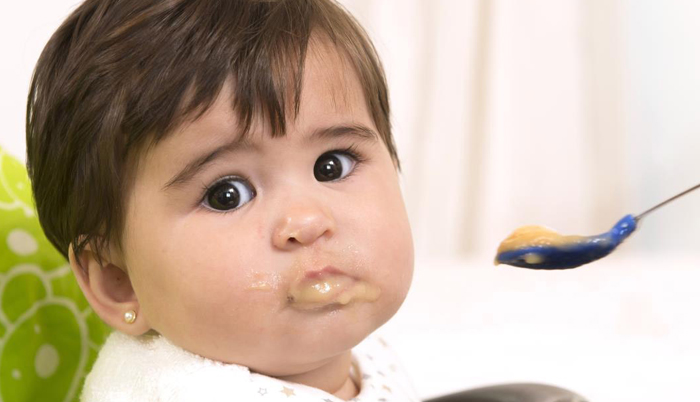![]() Home > Lifestyle
Home > Lifestyle
Spoon-Fed Babies At Higher Risk Of Becoming Obese, Researchers Find

News Target | Natural News
![]() January 15th, 2024 | 14:52 PM |
January 15th, 2024 | 14:52 PM | ![]() 1897 views
1897 views
NATURAL NEWS
Are you setting up your baby to become obese by spoon-feeding them? Dr. Amy Brown certainly thinks so. The Swansea University associate professor has asserted that a baby-led feeding approach is superior to the traditional spoon-feeding style. The idea that babies who feed themselves are healthier and more adventurous eaters is one Brown explored in her book, “Why Starting Solid Matters.”
Brown's assertion is supported by a study she conducted in 2014 with Swansea University psychology professor Michelle Lee. The study, which has been included in the book, covered the eating behaviors of 298 babies over the course of several months. First, Brown and Lee observed how the babies were introduced to solid foods, between six to 12 months. For the second part of the study, Brown and Lee then studied the eating behaviors and measured the weights of the same babies, between 18 to 24 months. Brown and Lee noted that babies who were being spoon-fed were “significantly currently heavier” than babies who fed themselves, despite the two groups having no critical differences several months prior. Specifically, 19.2 percent of babies from the spoon-feeding group were overweight, while only 8.1 percent from the baby-led group were in the same category.
Based on the results, the researchers concluded that spoon-fed babies were more likely to be overweight. According to Brown and Lee, this is possibly because the spoon-fed babies were unable to tell when they were full and tended to eat more food than they needed. By comparison, babies who were in control of their own eating were able to gauge when they were full and eat at their own paces, and therefore were less likely to be overweight. (Related: Baby fat not so harmless: Overweight infants lead to obese adults)
Furthermore, babies who fed themselves had a higher chance of becoming exposed a greater variety of foods. This, according to a 2012 study by Nottingham University researchers, would help the babies develop healthy eating habits early on. In the independent study, the researchers discovered that babies who were given finger foods at a younger age preferred carbohydrate-heavy foods over sugary ones.
Lead researcher Dr. Ellen Townsend explained, “It could be an age of introduction effect that we are seeing. Carbohydrates are ideal finger foods. But self-control of feeding may also be a factor. You are handing over control and letting the baby decide how much they want to eat. With spoon-feeding there is the temptation to get into them whatever is left in the bowl or the jar.”
Moreover, Brown has stated that babies should be allowed to eat as much or as little as they desired. “Let them eat as little as they want. A jar of baby food is too big for what a little baby needs,” Brown told the DailyMail.co.uk. “When you are waving the spoon around and saying 'Here comes the big aeroplane – let's finish it,' if they clamp their mouth shut, forget about it. They will not starve.”
On the mess that could be created by letting babies feed themselves, Brown answered, “Kids need to learn about food. They need to find out, for instance, what happens if they squash it or drop it on the floor.”
Tam Fry, head spokesperson for the National Obesity Forum, has shown his support for the idea. “It is important that they experience all five food groups and experiment with variety as much as possible. If half of it finishes on the floor, so be it – the value of experimentation in the early months of nutrition is incalculable, and babies won't willingly starve themselves,” Fry said. “If this also has the advantage of reducing unhealthy weight gain and avoiding obesity, it's a win-win for mums.”
Source:
courtesy of NATURALNEWS
by Frances Bloomfield
If you have any stories or news that you would like to share with the global online community, please feel free to share it with us by contacting us directly at [email protected]